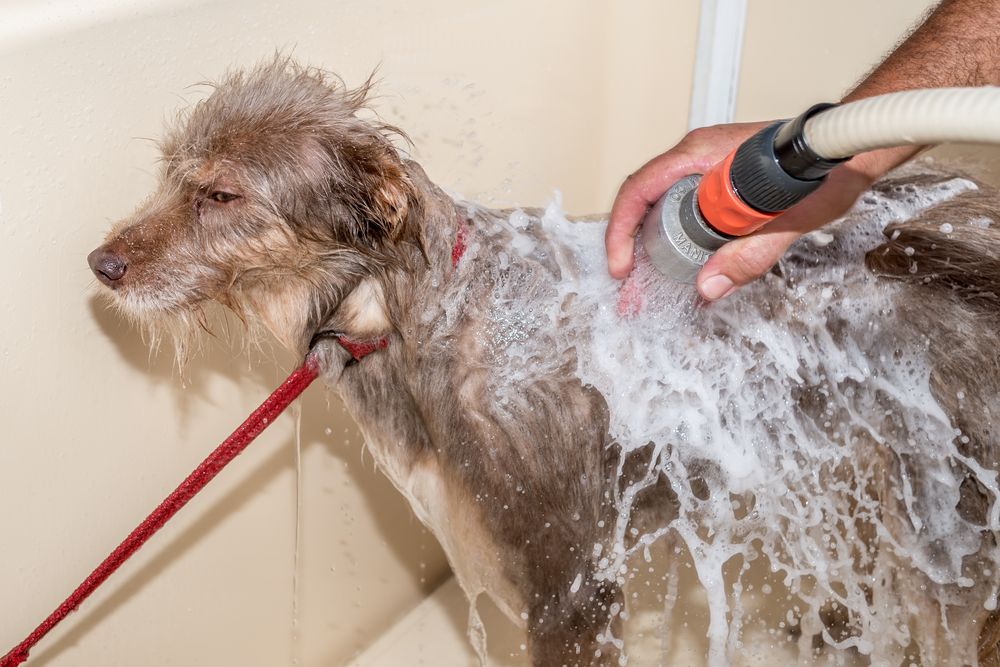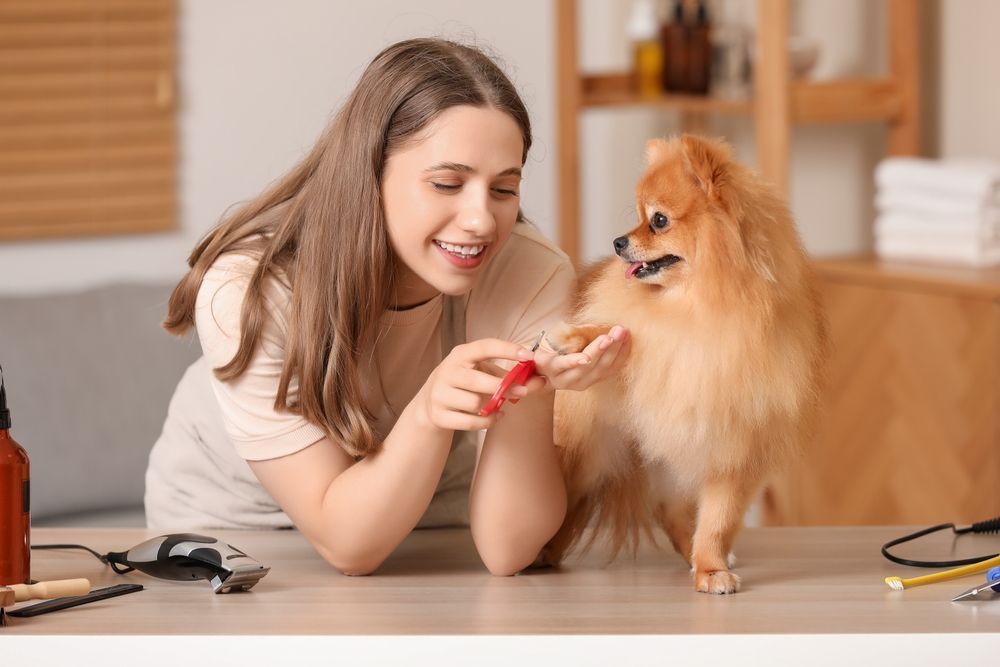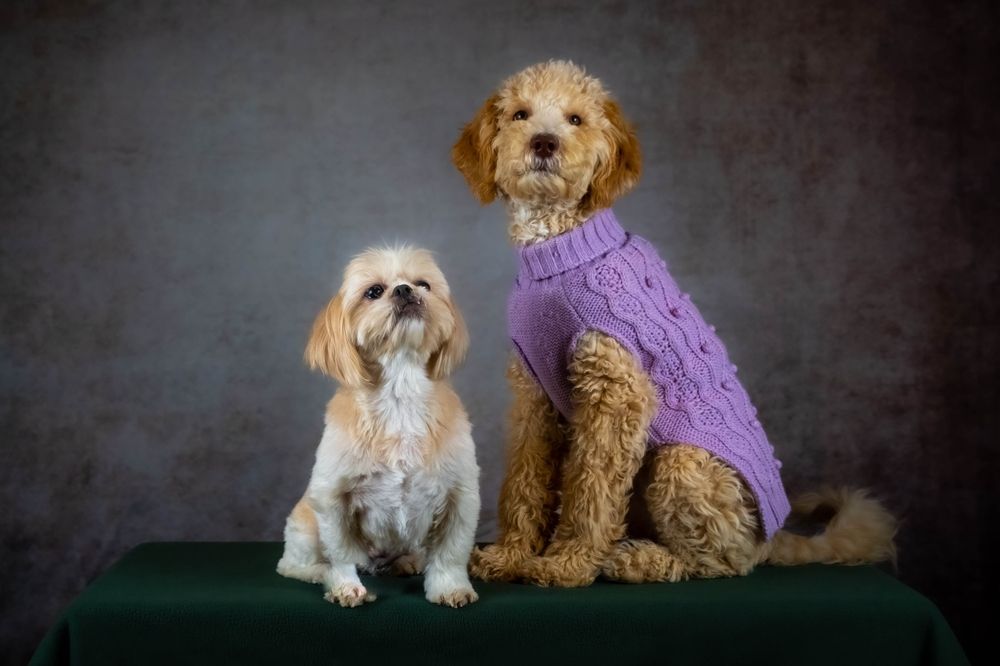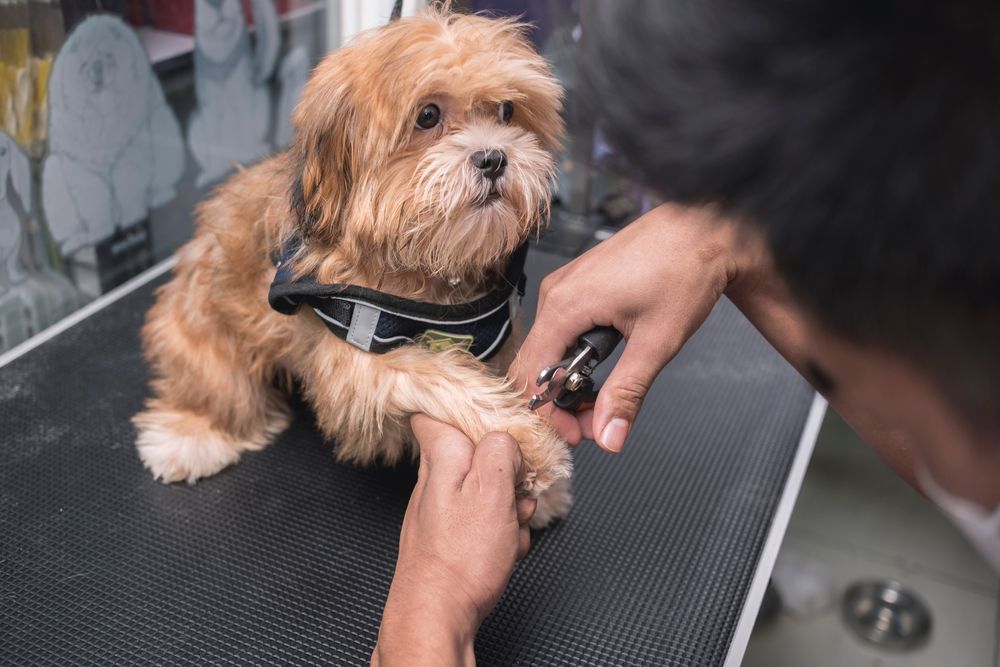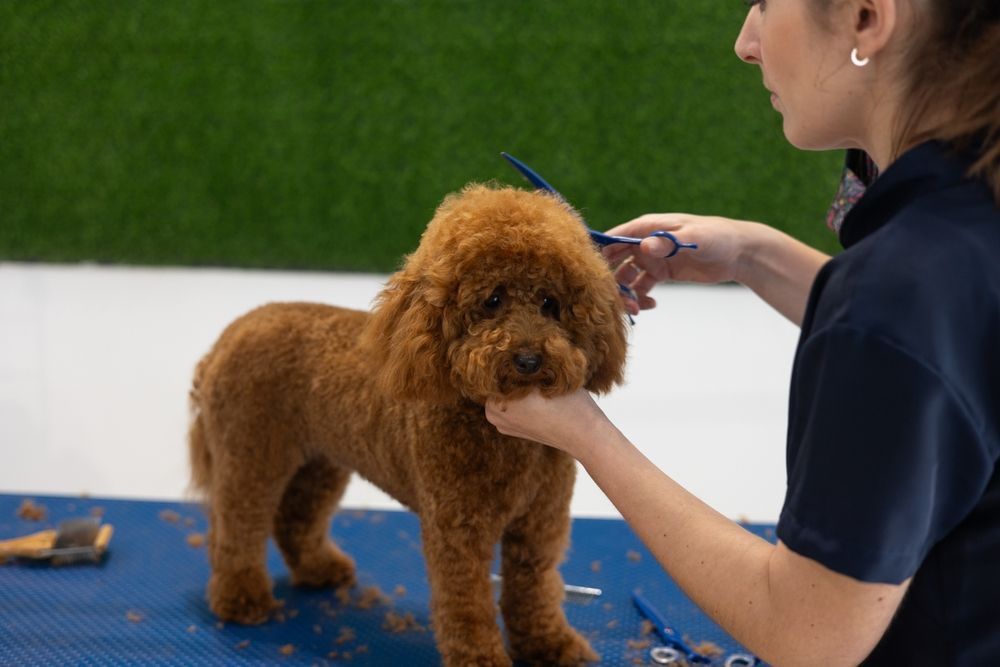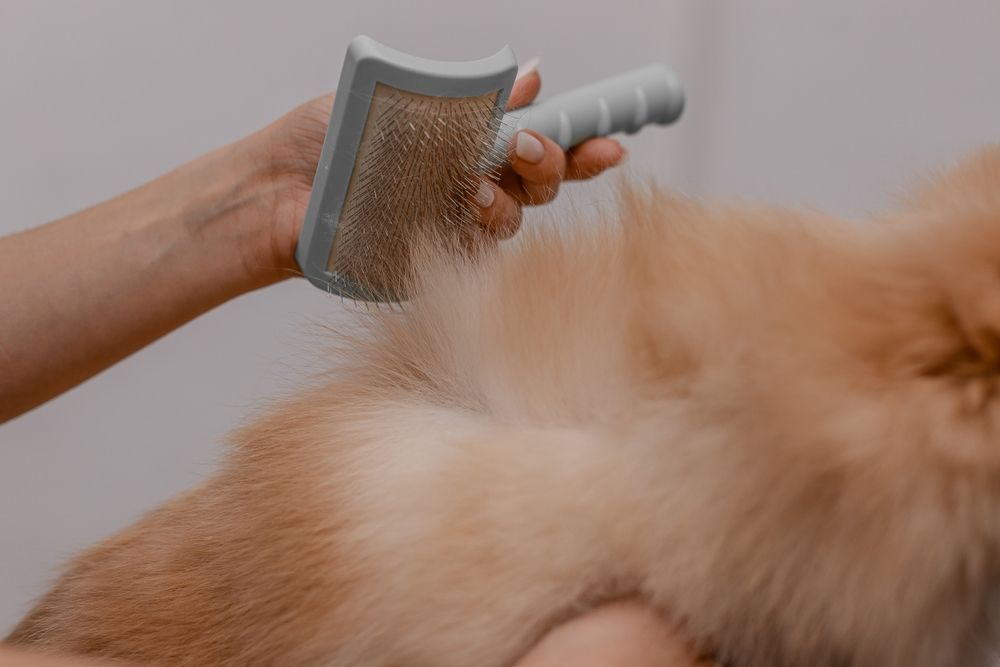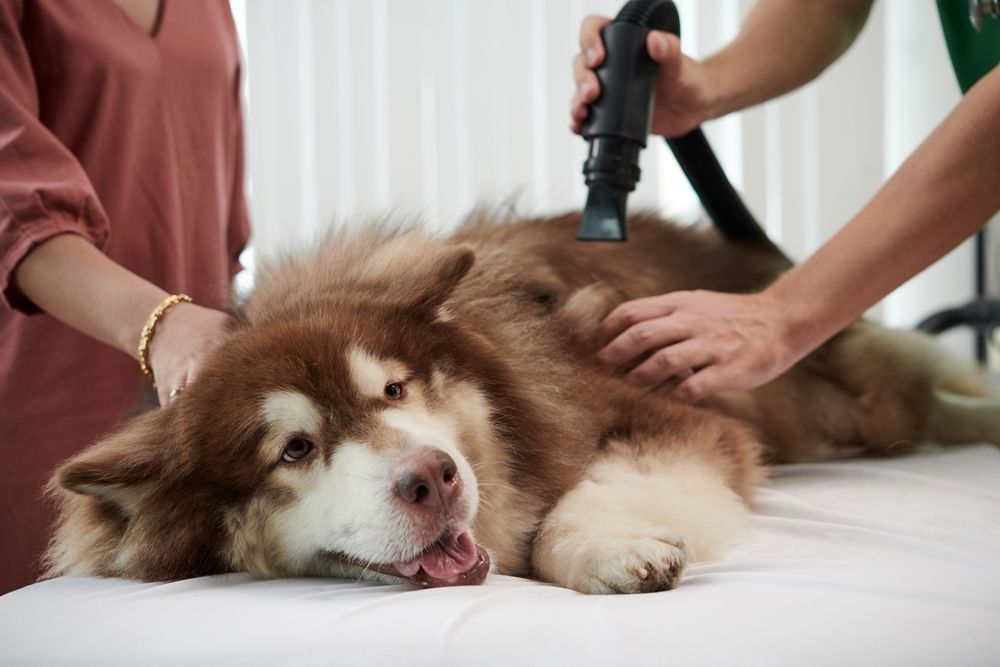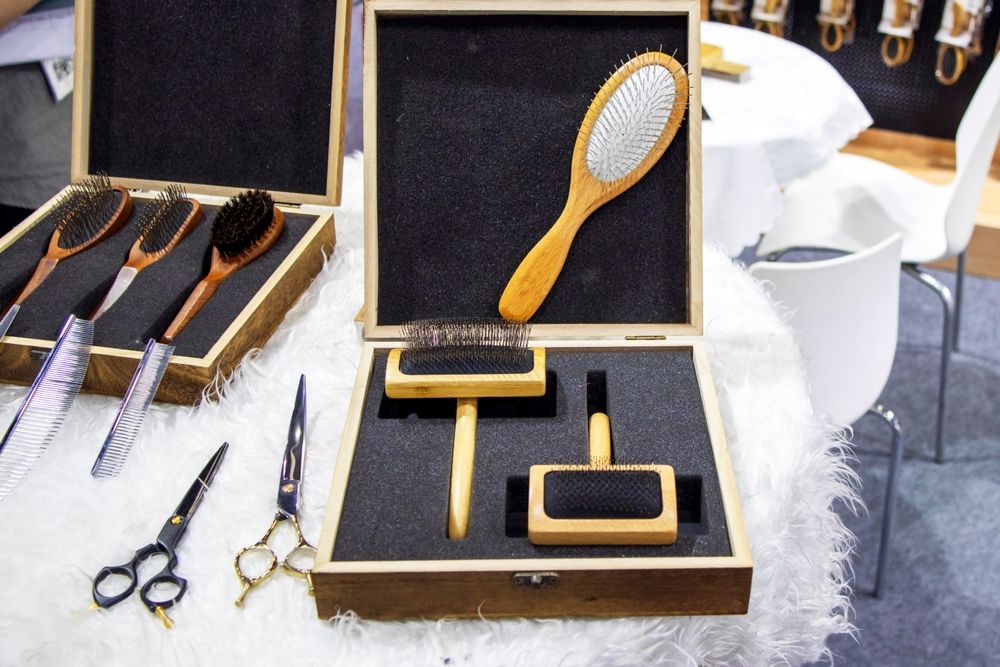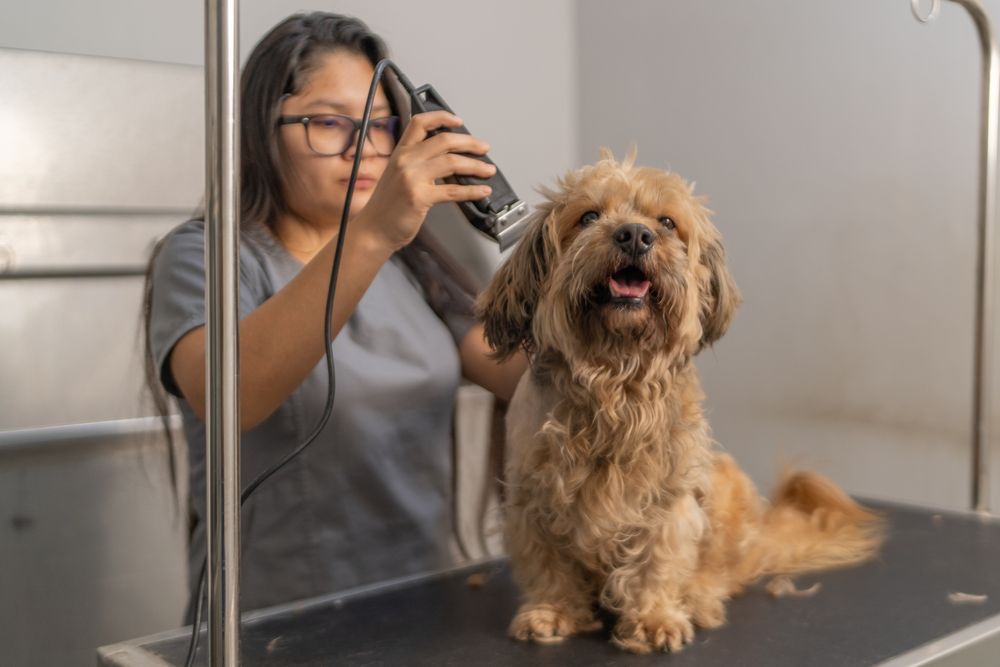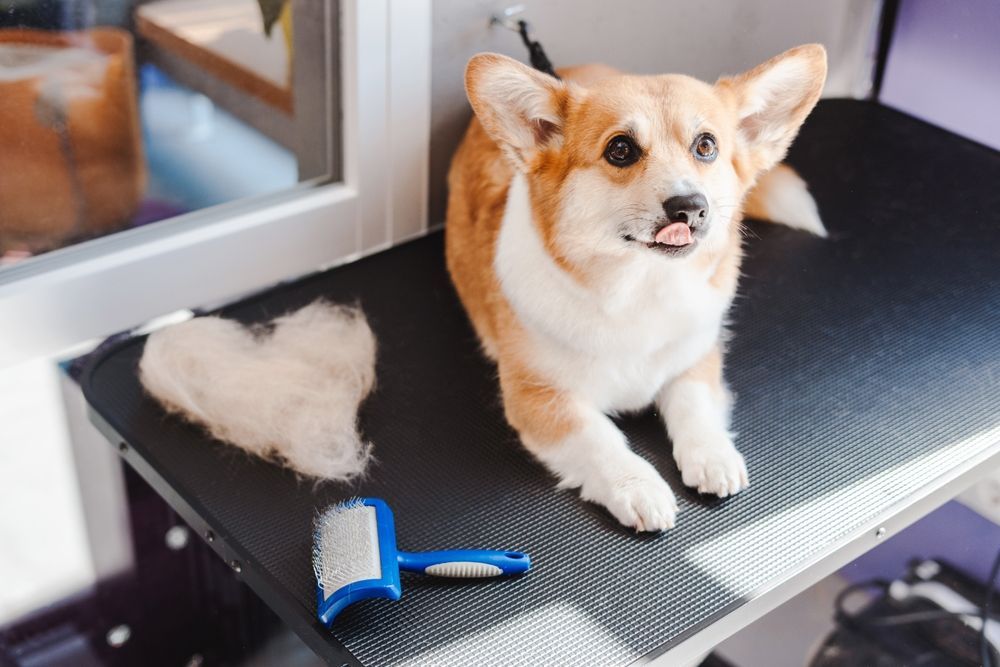How to Stop a Dog From Licking Paws Constantly
Does your dog keep licking their paws non-stop, leaving you puzzled? It’s more than just a quirky habit; excessive paw licking can signal underlying issues that need immediate attention.
Dogs lick their paws for a variety of reasons, from discomfort caused by allergies to external irritants or even emotional stress. Left unchecked, persistent licking can lead to redness, irritation, and even infection. The good news is that there are effective solutions to get your dog relief while maintaining their health and happiness.
In this guide, we’ll explore why dogs lick their paws excessively, how to identify the root cause, remedies to curb their habit, and how
professional grooming services can help.
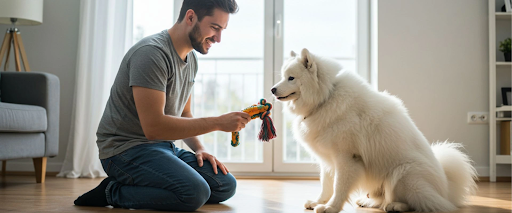
Why Dogs Lick Their Paws Excessively
Before we jump into solutions, it’s essential to understand the potential reasons behind your dog’s behavior. Here are the most common causes of excessive paw licking:
Allergies
Allergies are one of the leading causes of paw licking in dogs. Dogs can be allergic to various things, including
- Environmental allergens like pollen, grass, or mold
- Food allergies to ingredients such as soy, wheat, or dairy
- Contact allergies from materials like cleaning detergents or carpets
Itchy paws caused by allergies can make a dog lick them excessively to alleviate the irritation.
Irritants or Debris
Sometimes paw licking happens simply because of irritants that the dog has encountered. Common examples include
- Grass seeds, burrs, or small stones wedged between paw pads
- Rock salt, especially during winter
- Chemicals like lawn treatments or cleaning agents
Skin Conditions or Parasites
- Skin infections, such as bacterial or fungal infections, can make a dog’s paws itchy or sore, leading to excessive licking.
- Parasites like fleas, ticks, or mites may irritate the paws, prompting nibbling or licking to relieve the discomfort.
- Allergic reactions to environmental factors, food, or chemicals may also result in skin inflammation or redness on the paws.
- Cracked or dry paw pads caused by weather conditions or overexposure to rough surfaces can lead to irritation and contribute to increased licking behavior.
- Mange, a skin condition caused by microscopic mites, can result in intense itchiness and paw licking.
Skin infections, hot spots, or parasites like fleas and mites can also be contributors. These cause irritation that makes dogs hyper-focused on licking for relief.
Pain or Injury
A sore spot, a thorn, or even a minor injury can start your dog licking, especially if the pain or wound isn’t visible to the eye.
Stress or Boredom
- Dogs may lick their paws excessively as a way to cope with stress or anxiety, similar to how humans might fidget or bite their nails.
- Situations such as changes in the household, separation from their owners, or loud noises like fireworks can heighten a dog’s stress levels, leading to compulsive licking.
- Boredom can also trigger this behavior, especially in high-energy breeds that are not receiving enough mental or physical stimulation.
- Without proper outlets for their energy, dogs may resort to repetitive behaviors, including paw licking, to pass the time or self-soothe.
- Providing enrichment activities such as puzzle toys, regular walks, and interactive play can help reduce stress and boredom-related licking.
By figuring out what’s causing the licking, you’ll be better equipped to address the problem effectively.
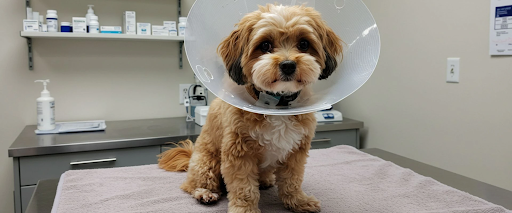
Steps to Stop Your Dog From Excessive Paw Licking
Stopping constant paw licking requires a mix of immediate remedies and preventative measures. Here’s how you can help excessive paw-licking for your dog:
1. Inspect Your Dog’s Paws
Check their paws carefully for physical signs of irritation, cuts, redness, or foreign objects like splinters. If you spot something unusual, address it right away:
- Remove small debris gently with tweezers.
- Clean the area with a pet-safe antiseptic solution.
If there are cuts or open wounds, consult your vet for advice.
2. Wash Paws After Outdoor Activities
Environmental irritants like grass pollen, salt, or mud can cling to your dog’s paws during walks. Washing your dog’s paws with lukewarm water after each outing can help minimize exposure to irritants. Pat their paws dry to avoid moisture buildup between the pads.
3. Apply a Dog-Friendly Paw Balm
Paw balms can soothe dry or irritated paw pads caused by constant licking. Many products also form a protective barrier against harmful surfaces and allergens.
4. Address Allergies
If allergies are the root cause, your vet may recommend dietary changes, antihistamines, or medications to manage symptoms. Switching to hypoallergenic food or limiting your dog’s exposure to allergens can also help.
5. Keep Your Dog Engaged
If the issue stems from boredom or stress, ensure your pup gets ample physical activity and mental stimulation. Provide chew toys, interactive puzzles, or dedicate time for regular walks to keep them happy and occupied.
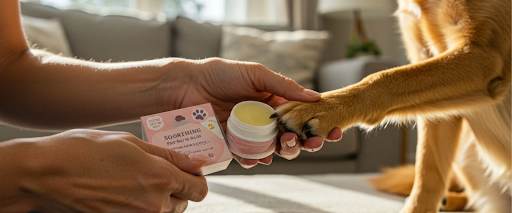
Natural Remedies for Itchy Dog Paws
If your dog’s licking is due to itchiness, try these pet-safe home remedies:
- Oatmeal Soak: Oatmeal is known for its soothing properties. Mix plain, unsweetened oatmeal with warm water to form a paste and apply it to your dog’s paws, or create an oatmeal bath for a full soak. This can help reduce itchiness and inflammation.
- Apple Cider Vinegar Dilution: A 50/50 mixture of apple cider vinegar and water can act as an antiseptic and relieve mild itching. Gently soak your dog’s paws in the solution for a few minutes, but avoid using it on open wounds or cracked skin, as it may sting.
- Coconut Oil: Pure, organic coconut oil can be applied directly to your dog’s paws to moisturize dry, itchy skin. Its natural antifungal and antibacterial properties can also help protect against infections.
- Aloe Vera Gel: Use pure aloe vera gel to cool and soothe irritated skin. Ensure it’s free from added ingredients like alcohol, which can be harmful to pets. Apply a thin layer to the affected area for instant relief.
- Epsom Salt Bath: Dissolve Epsom salt in warm water and soak your dog's paws for about 5-10 minutes. This can help reduce swelling and itchiness while promoting healing for minor cuts or irritation.
- Calendula Spray or Tea: Calendula has natural anti-inflammatory and healing properties. Brew calendula tea, allow it to cool, and use it as a soothing rinse or spray for itchy paws.
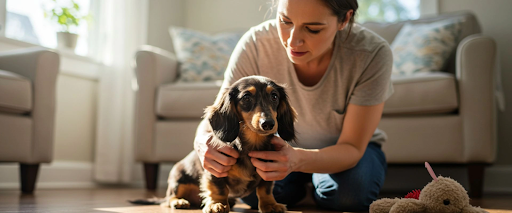
Why Professional Grooming Matters for Paw Health
Keeping your dog’s paws in top shape goes beyond home remedies. Regular grooming sessions ensure:
- Nails are trimmed to a healthy length, reducing discomfort.
- Paw pads are clean, preventing build-up of irritants.
- Potential issues like cuts, dryness, or infections are spotted early and addressed.
Happy Hounds Mobile Pet Grooming offers expert care tailored to your pet’s unique needs, bringing high-quality grooming services directly to your doorstep. Beyond regular dog bathing and trimming, our team keeps an eye out for any signs of irritation or potential health concerns during grooming.
FAQ
Why is my dog licking their paws until they’re red?
This indicates significant irritation or discomfort. Common causes include allergies, injuries, infections, or stress. Consult your vet to identify the issue.
What should I do if my dog’s paws are swollen?
Swollen paws often indicate an injury, infection, or allergic reaction. Clean the area and reach out to your vet for further care.
How often should I check my dog’s paws?
It’s a good habit to check your dog’s paws daily, especially after outdoor activities, to spot issues early.
How do I get my dog to stop licking paws at night?
Provide mental stimulation during the day, clean their paws before bed, and consider a deterrent spray or paw balm to prevent nighttime licking.
Can professional grooming help with paw licking?
Absolutely. Groomers can clean, inspect, and enhance your dog’s paw health, potentially uncovering and addressing underlying causes of licking.


